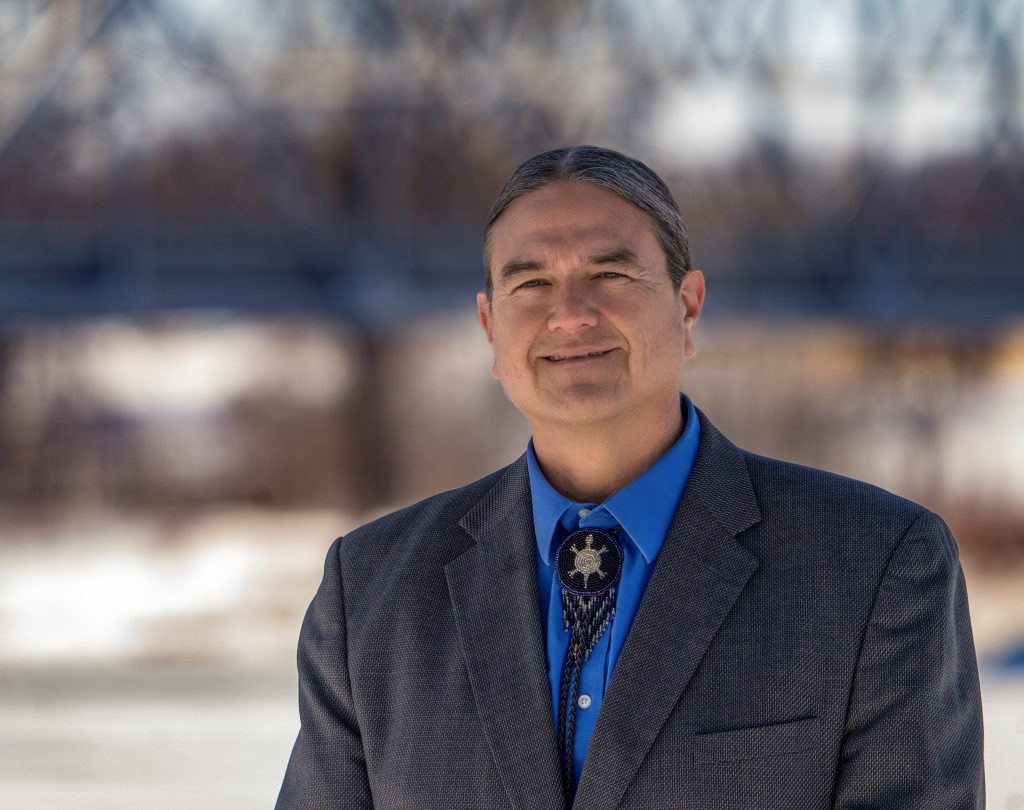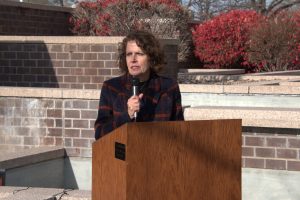CDC Foundation Names Brian Gott and Donald Warne to Board of Directors and Appoints Raymond Baxter as New Board Chair
The CDC Foundation today announced the appointment of two new members to its board of directors: Brian Gott, chief innovation officer for the Entertainment Industry Foundation (EIF), and Donald Warne, MD, MPH, co-director of the Center for Indigenous Health and tenured full professor at the Bloomberg School of Public Health at Johns Hopkins University. The Foundation also announced its new board chair, Raymond Baxter, chair of the Blue Shield of California Foundation Board of Trustees and retired senior vice president Community Benefit, Research and Health Policy at Kaiser Permanente.
“We are thrilled to welcome Brian and Donald to our board,” said Judy Monroe, MD, president and chief executive officer of the CDC Foundation. “Brian’s innovative approach to leveraging the entertainment industry for social good will be invaluable to our mission as we work with communities across the globe to improve health. Donald’s expertise in public health and his focus on improving the health of Indigenous populations will greatly enhance our ability to support these and other communities. Their unique perspectives and experiences will undoubtedly strengthen our efforts to protect the health and safety of all people.”
Monroe continued “Ray is a longtime member of our board, and his extensive experience in public health and his passion for improving community health make him an excellent fit to chair our board. His leadership in national health improvement partnerships and his dedication to addressing health for everyone will be invaluable assets to our organization.”
With these additions, the CDC Foundation’s board of directors currently comprises 16 directors. Directors can serve up to two five-year terms.
Raymond Baxter
Baxter has a long and distinguished career in public health, healthcare systems, long-term care and mental health, including heading the San Francisco Department of Public Health, the New York City Health and Hospitals Corporation and The Lewin Group, a health policy firm.
During his 15 years at Kaiser Permanente, he led the organization’s activities to fulfill its social mission, including care and coverage for low-income people, community health initiatives to reduce chronic disease, environmental stewardship and support for community-based organizations. He also served as president of Kaiser Permanente International.
He currently serves on the advisory board of the UC Berkeley School of Public Health. He previously served on the Global Agenda Council on Health of the World Economic Forum, and chaired the National Academies of Science, Engineering and Medicine’s Roundtable on Population Health Improvement.
Brian Gott
Gott serves as the chief innovation officer and head of industry relations for EIF. Prior to EIF, Gott spent more than a decade at Variety, serving as its publisher for much of his tenure. Gott is the recipient of the United Nations Foundation’s Global Leadership Award for his role in mobilizing the entertainment industry to support the United Nations (UN) and the United Nations Foundation-related humanitarian efforts. It was during a trip to northern Keyna with the UN and UNHCR, where he experienced the critical work being done by the UN Foundation, that he decided to focus his work on social-impact storytelling and philanthropic endeavors.
Gott is a founding member of the United Nations Foundation’s Global Entrepreneurs Council, a global ambassador for the Elizabeth Taylor AIDS Foundation, a board member for Whole Child International, and a member of the Constellation board for Starlight Children’s Foundation.
Donald Warne
Warne, a member of the Oglala Lakota tribe from Pine Ridge, SD, is a distinguished public health expert and advocate for Indigenous health. As the co-director of the Center for Indigenous Health, a tenured full professor and provost fellow at the Bloomberg School of Public Health at Johns Hopkins University, Warne brings extensive knowledge in addressing health disparities affecting Indigenous communities.
Warne’s extensive career spans diverse roles in healthcare, research and academia, reflecting his commitment to Indigenous health. He served as a primary care physician for the Gila River Health Care Corporation in Arizona and later as a staff clinician with the National Institutes of Health. Warne heads the Great Plains Hub of the Johns Hopkins Center for Indigenous Health, which through partnering with local stakeholders, traditional healers and traditional medicine the Center aims to help create sustainable change so that community members live longer, healthier lives.
Warne’s experience includes positions as health policy research director for the Inter Tribal Council of Arizona, executive director of the Great Plains Tribal Leaders’ Health Board, and faculty member at the Indian Legal Program of the Sandra Day O’Connor College of Law at Arizona State University. He has also held leadership roles in academia, including chair of the Department of Public Health at North Dakota State University and Indigenous Health Department chair and associate dean at the University of North Dakota School of Medicine and Health Sciences
About the CDC Foundation
The CDC Foundation helps the Centers for Disease Control and Prevention (CDC) save and improve lives by unleashing the power of collaboration between CDC, philanthropies, corporations, organizations and individuals to protect the health, safety and security of America and the world. The CDC Foundation is the go-to nonprofit authorized by Congress to mobilize philanthropic partners and private-sector resources to support CDC’s critical health protection mission. Since 1995, the CDC Foundation has raised over $2.2 billion and launched more than 1,400 programs impacting a variety of health threats from chronic disease conditions including cardiovascular disease and cancer, to infectious diseases like rotavirus and HIV, to emergency responses, including COVID-19 and Ebola. The CDC Foundation managed hundreds of programs in the United States and in more than 80 countries last year.





